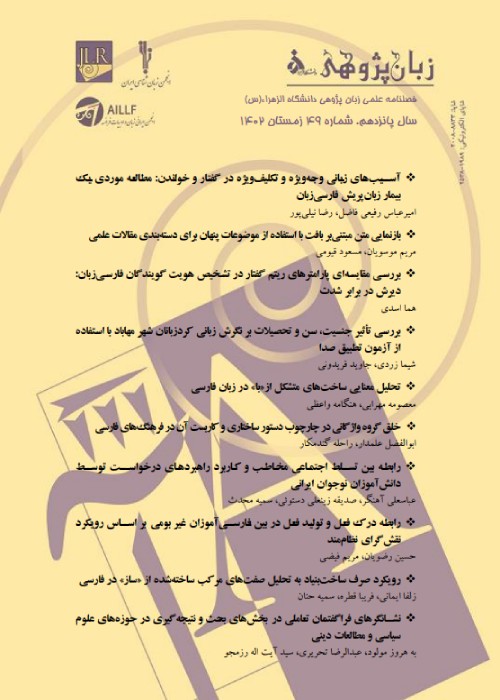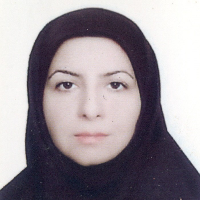Postcolonial Analysis of Laughing without Accent and Its Translation Applying Linguistic Appropriation Approach
Protecting local culture has expanded in different forms in contemporary literature and has developed a new literary genre called postcolonial literature. Indigenization of English language and its appropriation with language and culture of the former colonial countries is one of the characteristics of postcolonial writing that immigrant authors also enjoy in writing from their experiences in diaspora and transferring their local culture which results in linguistic creativities. One of these creativities is appropriation which is an important component of Postcolonial studies. It is a process which reconstitutes the language of the center to express the ‘differing cultural experiences’ (Ashcroft et al, 2002, p. 38). It seizes the language of the center and replaces it in ‘a discourse fully adapted to the colonized place’ (p. 37). Zabus (2007) also considers appropriation as conscious strategies of decolonization where ‘writing with an accent’ serves to convey ideological variance. Sometimes the English language is unconsciously appropriated by the non-native users. Joseph (2006) believed that a language undergoes a change because of the interference of mother tongue with its inherent resistance. Thus, when a writer from a non-native country would produce something in English, there must be some changes under the influence of their mother tongue.
There are different strategies of appropriation that result in varieties of English language. Some postcolonial writers mixed the linguistic structures of two languages making an ‘inter-culture’ (as cited in Ashcroft et al, 2002, p. 66). Kachru (1983) and Ashcroft et al. (2002) identify at least nine language appropriation strategies: The first strategy in appropriation technique is termed as glossing, it is an explanatory comment affixed to a text. It can be a word, a sentence, or a clause, characterizing the non-English word. The second strategy is the incorporation of untranslated words or leaving words un-glossed, it aims to keep the cultural uniqueness intact. The third one is termed as syntactic fusion, which is the amalgamation of two different linguistic structures, resulting in mixing the syntax of native language with the lexical forms of English, or vice versa. Fourthly, the usage of translation equivalence permits the writer to incorporate the local opinions and insights into a foreign language. In lexical innovation the words are borrowed from local languages and incorporated into the new English. The post-colonial writers use it as a means to describe new experiences, sounds and tastes they come across. Contextual redefinition provides a way to introduce new vocabulary words. The author adopts a new context that is too remote from the English-speaking world to have the same definitions for all the terms. Inter language strategy refers to the entrance of texts, rhythms or sounds related to the writers` mother tongue to the postcolonial writing which shows his/her creativity and interest to the mother tongue. Rhetoric and functional style appropriation strategy deals with changing in different text types and finally, code switching is the technique of moving between two or more codes to bring variation in the ways of expression. Considering the important role of the linguistic appropriation strategy in producing postcolonial literature, this descriptive - analytical study was done in accordance with Kachru (1983) and Ashcroft et al. (2002) framework on postcolonial writing, with an aim of looking for elaboration of linguistic appropriations in the English series of stories Laughing without Accent by Jzayeri Duma and its translation by Mo`takef. Duma is an Iranian immigrant writer who has already published two successful series of stories in America which have been translated into different languages all around the world and they have been translated into Persian too. In her stories, Duma depicted her Persian family life in America for the American readers and helped them to know about the minority of Iranian immigrants living in America through her lens of humorous writing.
Studying Duma`s series, this study looked for answering the following questions: can the English text of the stories be analyzed from a postcolonial point of view according to linguistic appropriation theory? What strategies did the author use to make linguistic appropriations and create a postcolonial work? Were the linguistic appropriations transferred to Persian translation of the stories too? The results of the study showed that the author used glossing, un-translated words, contextual redefinition and inter language and code-switching appropriation strategies in her stories and created a postcolonial text. This study also showed that some of these strategies like glossing and inter language appropriations were left in the translation of the stories, but the rest of them were not transferred and faded away in the process of translation. Inter-language appropriations entered the English pronunciation of the words and glossing made some cultural elements of English language enter the Persian text.
- حق عضویت دریافتی صرف حمایت از نشریات عضو و نگهداری، تکمیل و توسعه مگیران میشود.
- پرداخت حق اشتراک و دانلود مقالات اجازه بازنشر آن در سایر رسانههای چاپی و دیجیتال را به کاربر نمیدهد.




